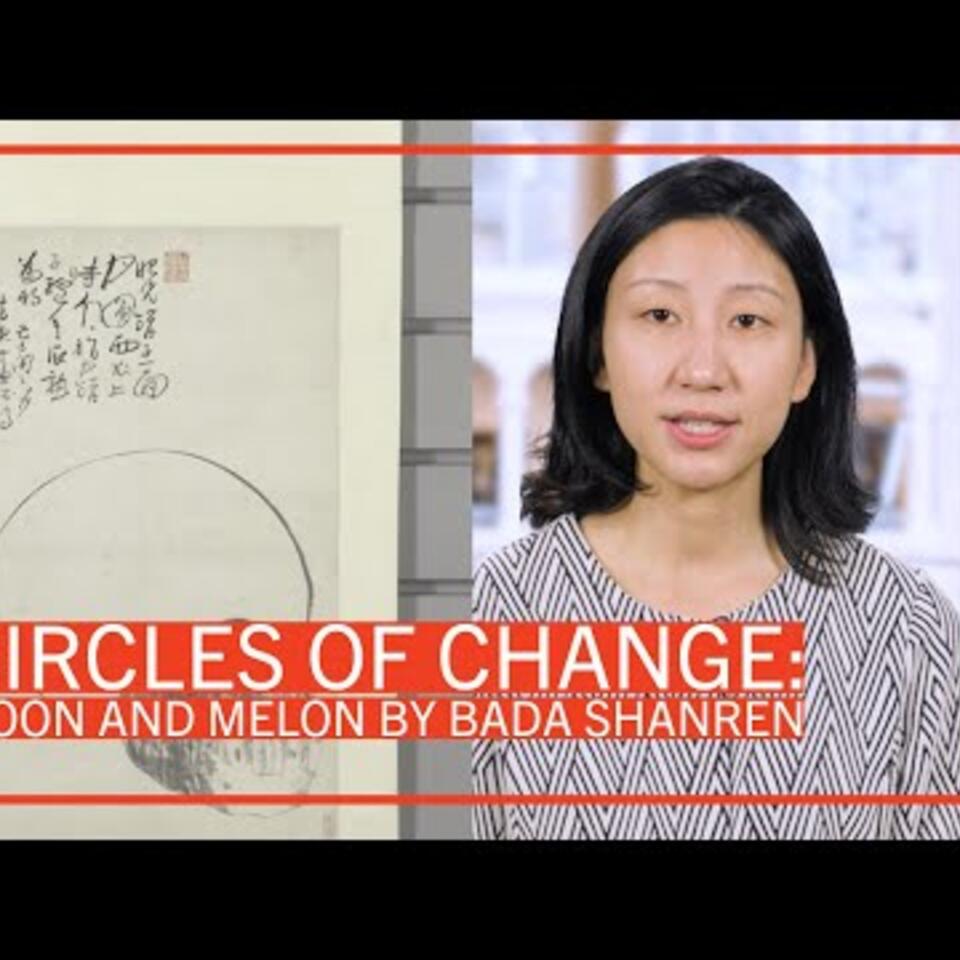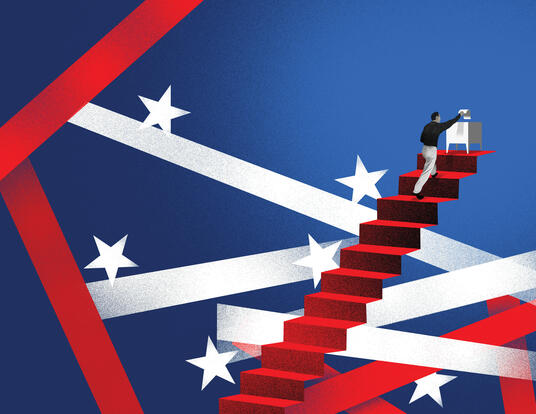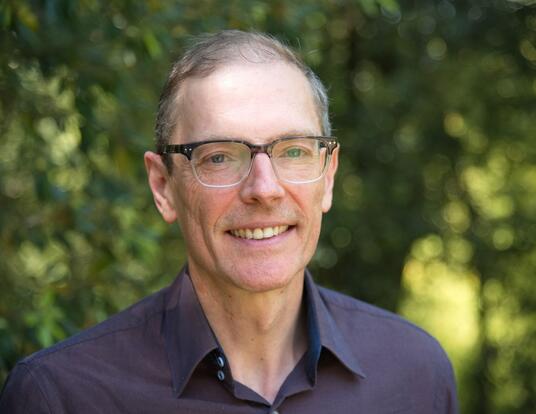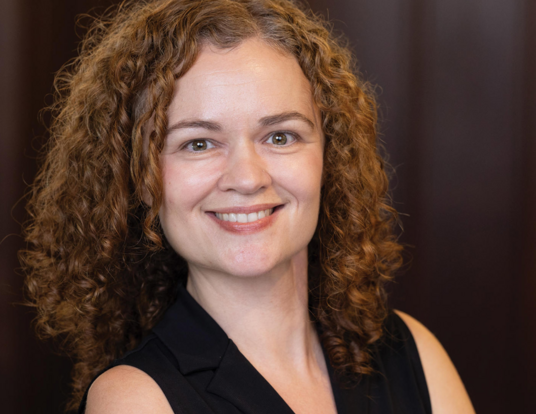Asking Questions
How Janan Graham-Russell studies racial identity in the Mormon church
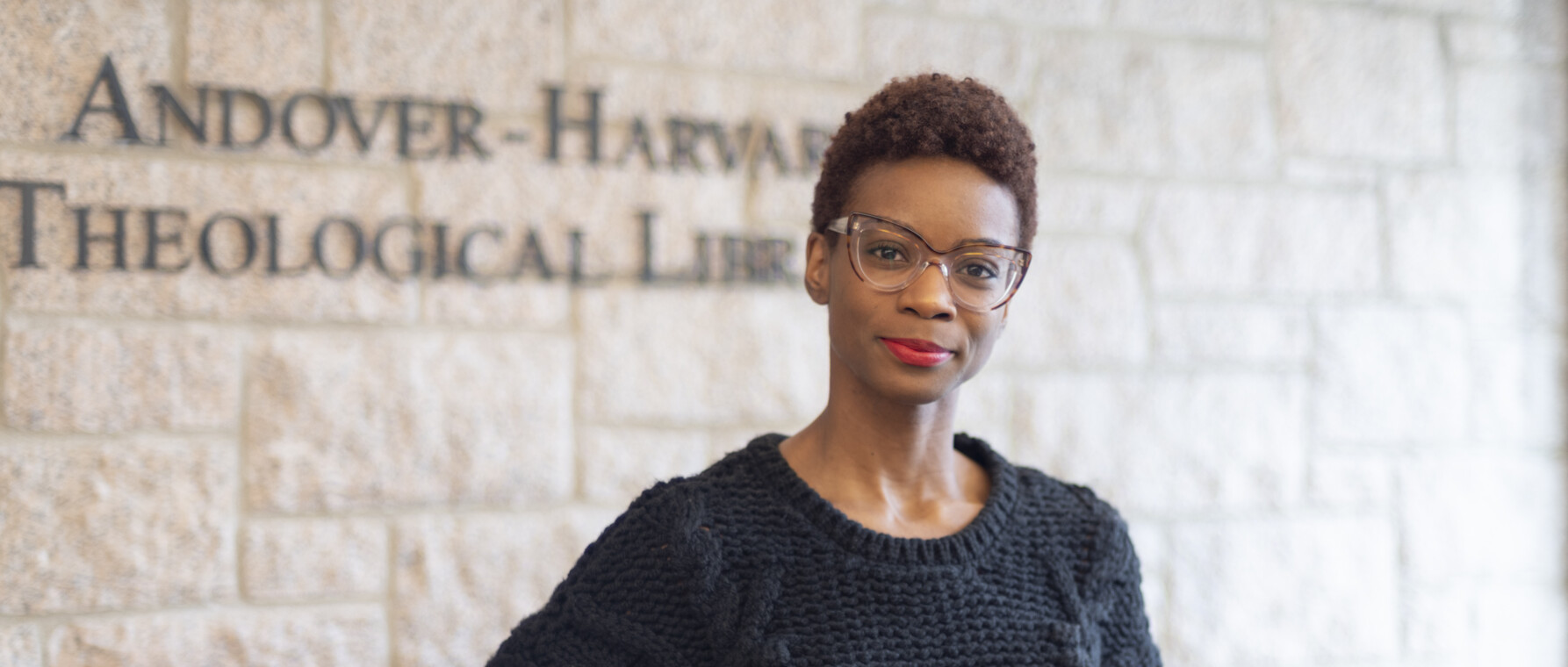
In May 2018, a letter was published online and quickly circulated among the Mormon community. In the letter, the Church of Jesus Christ of Latter-day Saints apologized for the racial restrictions that denied Black Mormons the priesthood as well as participation in certain temple ceremonies from the mid-1800s to 1978. “A lot of people were really excited and emotional,” remembers Janan Graham-Russell, a PhD candidate in the study of religion. “Of course, we then realized that the letter was a hoax.”
The letter writer, a former member of the church, claimed he had released it to foster much-needed discussion about Mormonism and racism. But according to Graham-Russell, the only thing the hoax achieved was a whiplash of emotions for Black members who saw their excitement turn to heartbreak in a matter of hours. For Janan, the fake letter and the fallout that ensued are a reminder of the long and oftentimes fraught relationship that exists between Mormonism and racial identity, a relationship she is probing in her research.
Finding One's Calling
Nine years ago while studying graphic design at Purdue University, Graham-Russell began feeling restless. “It was the summer before I graduated, and I felt that something was missing from my life,” she remembers. Graham-Russell had always been curious about faith and the ways in which people practice their faith, so she began researching different religions and eventually met a couple of Latter-day Saints missionaries. “What they said really spoke to me, spoke to my spirit, and I thought it was a really beautiful theology,” Graham-Russell says. After a few meetings with the missionaries, she was baptized into the Mormon faith.
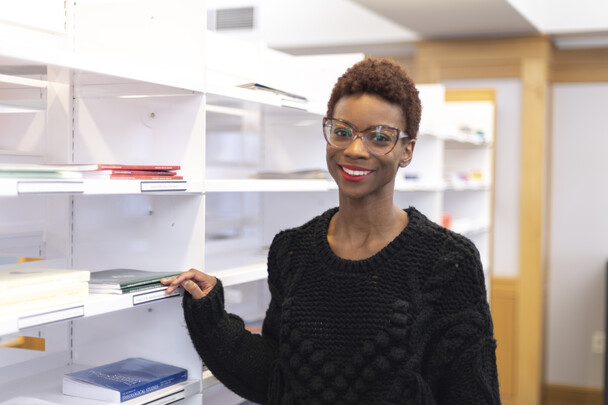
The community aspect of Mormonism was another draw. “There are a lot of symbols in Mormonism and one of them is the beehive,” Graham-Russell explains. “The Mormon community resembles a beehive where everyone has their own role, their calling, the thing they contribute.” As Graham-Russell was taken into the fold of her congregation, she began to ask questions about her new faith. She was particularly curious about what led Brigham Young, the church’s second president, to enact racial restrictions in 1852. The response she got was mixed.
“When I started talking more about race, people started to distance themselves from me, which is fine! I don’t know why you would want to be in my company,” Graham-Russell laughs ruefully. “But, while some people distanced themselves, there were others who stepped forward, who had similar questions.” When Graham-Russell’s questions were answered, it was in a dismissive “we don’t know” way, since no official church doctrine explained the restrictions. The lack of explanation did not sit right with her: “When it comes to something that is my identity, ‘we don’t know,’ isn’t sufficient,” she says.
So, Graham-Russell kept digging, asking questions, writing essays, and fostering discussions about race and Mormonism. When asked if her work annoys church elders, she laughs. “Will I be excommunicated? It’s definitely in the back of my mind,” she confesses. “On the one hand, I do have respect for the history and the faith because it is important to me, but it’s also important to speak truth to power.” While she acknowledges that her outspokenness can make some people uncomfortable, she makes no apologies for it. “I guess that’s my calling in some ways,” she says.
Having Hard Conversations
As Graham-Russell spent more and more time at conferences and panels discussing race and Mormonism, the idea of graduate school firmed up in her mind. “To be able to engage Mormonism and race in the way that I wanted to, I think a master’s degree was necessary,” she explains. And, once she earned her master’s in religious studies from Howard University, she thought, “why not just keep going?”
Graham-Russell’s dissertation focuses on how race is established within Mormonism in past and modern-day congregations. “Within the United States, the way we think about racial formation is very straightforward, as if there’s only one way that race has developed over time,” Graham-Russell says. “So, it’s been surprising to see the different ways that people have conceptualized race within Mormonism.”
As part of her thesis, Graham-Russell investigates how different ethnic groups within the Latter-day Saints engage with Mormonism’s racial narrative, with particular attention paid to the racial restrictions. She explains that where one roots one’s blackness varies from group to group. “For African Americans who have enslaved ancestors, you look within that history, while for Haitian Americans, you’re looking at the Haitian revolution,” she says. According to Graham-Russell, this in turn impacts how different groups navigate the church’s previous racial restrictions. While working with a Haitian Creole congregation in South Boston, she noticed that discussions about the origin of the racial restrictions were uncommon in that ward. “Part of my research is asking why are they not talking about this?”
It never escapes Graham-Russell that her work is not just about history, but also about the present. “These issues are impacting people now,” she emphasizes. Moments like the hoax letter are perfect examples that Mormonism’s long racial history still looms large in the minds of many of its members. “But we tend to shy away from these questions because it’s seen as ‘sowing doubt,’” she explains. With her work, Graham-Russell hopes that these hard conversations will happen within the church; at the same time, she hopes that what she learns in the course of her research will have an impact outside of Mormon circles. “I’m hoping that what I’m studying about race and racial identity extends beyond Mormonism and can advance different ideas about identity,” she says.
Photo by Molly Akin
Get the Latest Updates
Join Our Newsletter
Subscribe to Colloquy Podcast
Simplecast


